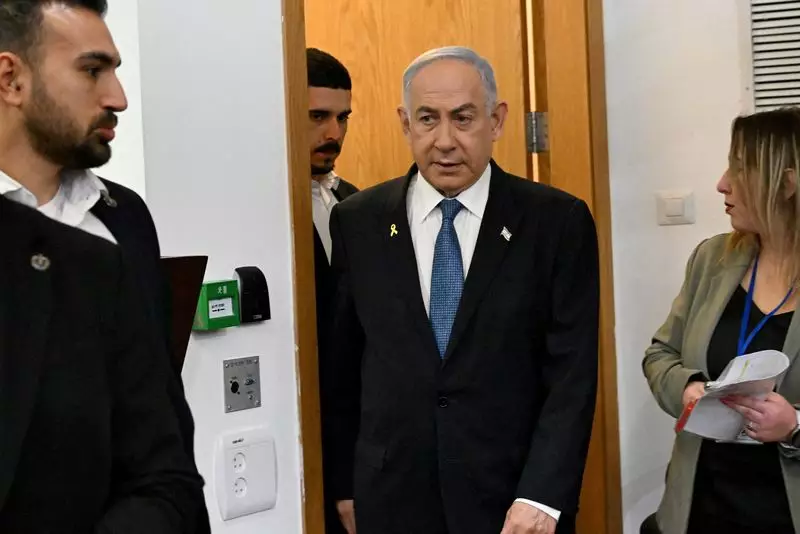Israeli Prime Minister Benjamin Netanyahu’s recent emergence from a hospital bed—following prostate surgery—has underscored a gripping narrative of leadership in tumultuous times. His decision to attend the Knesset, defying medical advice, was driven by the urgency of cementing support from his coalition partners for the proposed 2025 budget. This budget is not just a financial blueprint; it represents an attempt to bolster state revenues amid growing tension within an already fractious coalition. Netanyahu’s move, while showcasing his commitment, raises critical questions about the sustainability of his leadership and the potential repercussions of his health choices on Israeli governance.
The Coalition’s Internal Struggles
The fragility of Netanyahu’s coalition—a collection of hardliners and ultra-Orthodox parties—has become increasingly evident as dissent within its ranks threatens to unravel the fabric of governance. Key figures, like Public Security Minister Itamar Ben Gvir, have publicly challenged the Prime Minister, insisting on more financial resources for the police amid concerns over public safety. Additionally, various ultra-Orthodox factions are voicing opposition to proposals aimed at military conscription for their community members. This discord not only jeopardizes the budget’s passage but also signals widening rifts that could destabilize the right-wing government that Netanyahu has painstakingly assembled.
Budget Implications and Economic Concerns
The contentious budget outlines a wartime austerity strategy involving tax increases and spending cuts—essentially a fiscal response to the economic ramifications stemming from the ongoing conflict with Hamas. This situation is dire, as Israel grapples with stagnant economic growth and rising inflation, severely impacting the cost of living for its citizens. As the budget moves to committee consideration, the potential for amendments looms large, and the possibility of a complete resolution by January remains uncertain. Failure to reach consensus by the end of March might spell political upheaval, necessitating new elections that could deepen the existing political crisis.
The opposition’s stances—from demanding Netanyahu to dismiss the attorney general to contesting budgetary allocations—indicate an environment ripe for conflict. Notably, Netanyahu’s strategic inclusion of opposition lawmaker Gideon Saar as foreign minister aimed to fortify his coalition, yet it also exposes the Prime Minister’s vulnerabilities. The narrow majority of 64-56 that the coalition holds in the Knesset is indicative of a governmental framework that is precariously perched on the edge of instability. Saar’s new role may indeed bring additional complexities to coalition dynamics, affecting decision-making processes that are crucial for Israel’s political and economic future.
As Israel navigates these pressing challenges, the upcoming months will be pivotal for Netanyahu’s administration. The potential for policy changes during the committee review of the budget highlights the volatile nature of coalitional politics. Ultimately, the ability of Netanyahu to unify his supporters while addressing the concerns of dissenting factions will dictate whether this government can thrive or will succumb to internal divisions. In a period marked by external threats and internal strife, the quest for a stable and cohesive government in Israel remains more crucial than ever.

